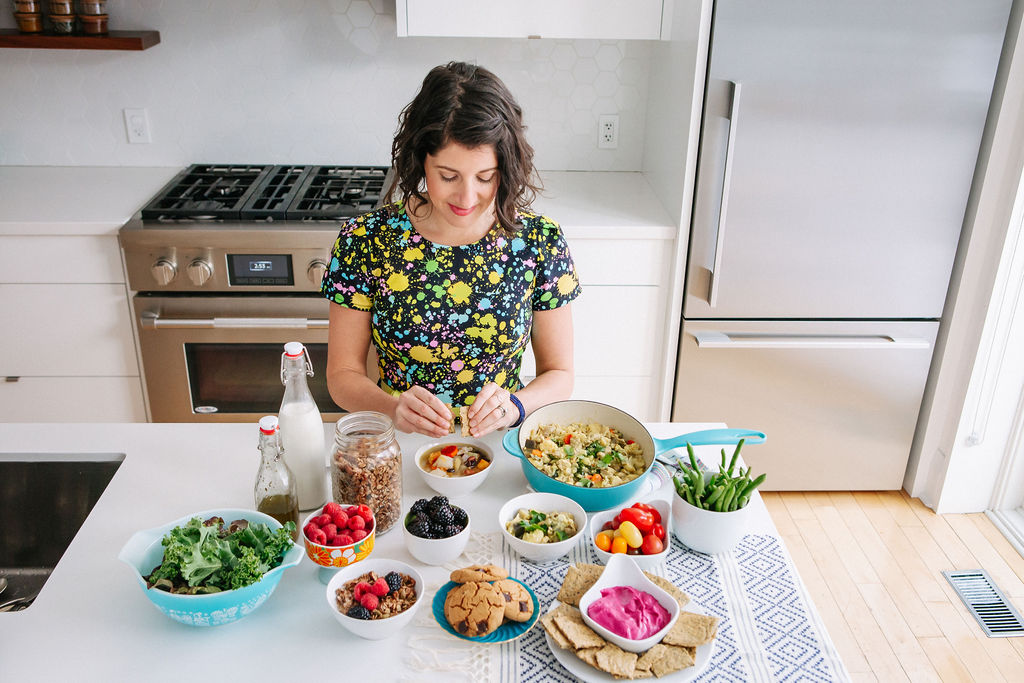Creating healthy, home-cooked meals doesn’t have to be a daunting task – with a well-organized kitchen, stocked with nutritious ingredients and the right tools, cooking wholesome meals can become second nature. Whether you’re a seasoned cook or just beginning your journey into healthier eating, setting up your kitchen for success is essential.
Here are some practical tips to help you cultivate healthy cooking habits through thoughtful kitchen organisation, meal prepping, and choosing safer cookware.
Start with a Clean and Organized Space
A clutter-free kitchen is more inviting and functional. Begin by clearing countertops of unnecessary appliances and utensils that you rarely use; this will give you more space to prepare meals, making cooking less stressful and more enjoyable.
Next, organise your cabinets and pantry. Group similar items together, such as grains, spices, and canned goods, so you can easily find what you need. Clear jars or containers are great for storing grains, nuts, seeds, and other dry goods, making it easy to identify what’s running low.
Consider dedicating a section of your fridge for meal prep ingredients – like pre-chopped vegetables, cooked grains, and proteins – so everything you need is ready for cooking at a moment’s notice.
Stock Up on Nutritious Ingredients
A well-stocked pantry and fridge are key to making healthier meal choices. Instead of processed or sugary foods, fill your kitchen with whole foods that provide the nutrients your body needs.
Here’s a checklist of nutritious staples to keep on hand:
- Whole grains like quinoa, brown rice, and oats
- Healthy fats such as olive oil, avocado oil, and nuts
- Lean proteins including beans, lentils, and tofu
- Fresh produce with a focus on colourful fruits and vegetables
- Herbs and spices to enhance flavour without added salt or sugar
By having these essentials on hand, you can create a variety of nutritious meals without resorting to takeout or heavily processed foods.
Prioritize Meal Prepping
Meal prepping is a fantastic habit for those who want to eat healthier but struggle with time constraints during the week. Dedicate a few hours over the weekend to prepare ingredients or even cook complete meals for the upcoming days.
Here are some meal prep tips:
- Batch cook grains like quinoa or brown rice and store them in airtight containers for easy use throughout the week.
- Chop vegetables in advance and store them in the fridge for quick additions to stir-fries, salads, or roasted dishes.
- Prepare protein-rich meals like grilled chicken, tofu, or beans that can be reheated and paired with different dishes.
- Create smoothie packs by portioning out fruits and leafy greens in freezer bags, so you can blend up a healthy breakfast in minutes.
With meal prep in place, you’ll be less likely to reach for unhealthy snacks or order takeaway when you’re short on time.
Choose Safer Cookware
The type of cookware you use can impact both the safety of your meals and the quality of your cooking. Avoid using old, scratched non-stick pans, as they may release harmful chemicals when heated. Instead, invest in safer options such as:
- Stainless steel: Durable and safe, perfect for searing, sautéing, and boiling.
- Cast iron: Great for cooking at high temperatures, and it can even add a small amount of iron to your meals.
- Ceramic: A non-toxic alternative to traditional non-stick pans, excellent for low-fat cooking.
- Glass bakeware: Ideal for casseroles, roasting, and baking, without the risk of chemical leaching.
By choosing safer cookware, you’ll reduce the risk of harmful chemicals entering your food, while improving your cooking experience.
Create a Hydration Station
Proper hydration is an important part of maintaining a healthy lifestyle, and setting up a dedicated hydration station in your kitchen can remind you to drink more water throughout the day. Consider investing in a water dispenser, which provides easy access to fresh, filtered water for both cooking and drinking. Having a reliable source of clean water can encourage you to stay hydrated, while also making it simple to use water for healthier cooking methods like steaming and boiling.
Make Space for Healthy Snacks
We all get hungry between meals, and having healthy snack options on hand can prevent you from reaching for less nutritious options. Dedicate a section of your pantry or fridge for healthy snacks like:
- Fresh fruit and vegetables
- Nuts and seeds
- Greek yoghurt
- Whole grain crackers
Keep pre-portioned snacks ready to grab and go, so you can make better choices when hunger strikes.
Maximise Kitchen Efficiency with Smart Tools
Using the right kitchen tools can make healthy cooking faster and more enjoyable. Consider adding the following to your kitchen:
- High-quality knives: A sharp knife makes chopping vegetables and preparing meals much quicker and safer.
- A blender or food processor: Perfect for smoothies, soups, and homemade sauces.
- A steamer: A great way to cook vegetables without losing nutrients.
- Glass storage containers: Ideal for meal prep, they keep food fresh without harmful chemicals found in plastic.
These tools can streamline your cooking process and make it easier to stick to healthy habits.
Setting up your kitchen for healthier cooking doesn’t have to be complicated
With a clean and organised space, nutritious ingredients, meal prepping habits, and safe cookware, you’ll be well on your way to making wholesome meals part of your daily routine. Don’t forget to keep yourself hydrated with a convenient water dispenser, ensuring you have access to fresh, clean water for both drinking and cooking. By making small changes in your kitchen setup, you can create an environment that supports your healthy lifestyle.



